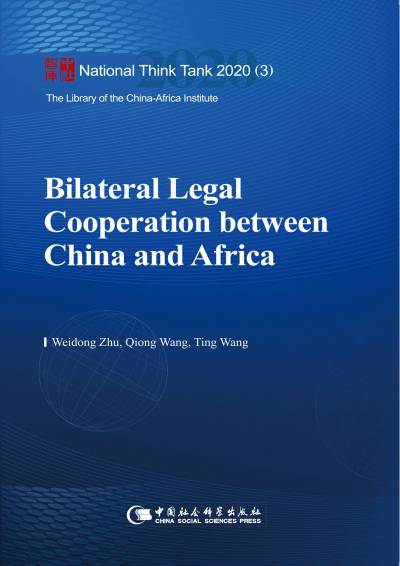
Bilateral Legal Cooperation between China and Africa
Zhu Weidong, Wang Qiong, Wang Ting
Introduction
Bilateral trade between China and Africa has developed rapidly in recent years.Since 2009,China has been Africa's largest trading partner for 10 consecutive years.In his keynote speech at the opening ceremony of 2018 Beijing Summit of Forum on China-Africa Cooperation(FOCAC),President Xi Jinping made it clear that the building of the Belt and Road Initiative should align with the development strategies of African countries and build a closer China-Africa community with a shared future. To this end,he proposed that China should work closely with African countries in the next 3 years and beyond to implement the“EightMajor Initiatives”.These cover the following 8 areas: industry promotion,infrastructure connectivity,trade facilitation,green development,capacity building,health,people-to-people exchanges and peace and security. The implementation of the“EightMajor Initiatives”will bring a rare historic opportunity for the development of China-Africa economic and trade relations.With the development of investment and trade between China and Africa and the further strengthening of cultural and people-to-people exchanges between China and Africa,there are bound to be a large number of economic,trade and investment disputes,civil and commercial disputes and various criminal cases between China and Africa..It is proposed in the Initiatives adopted at previous FOCAC that China and Africa should negotiate and sign more bilateral treaties on investment and judicial assistance in the field of legislation,justice and law enforcement.But,with the rapid development of China-Africa economy,trade,investment and cultural exchanges,the current legal construction is still lagging behind and can't provide effective legal guarantee for bilateral exchanges and cooperation.
In the field of civil and commercial affairs,there have been an increasing number of legal disputes involving parties in China and Africa in recent years.These disputes involve contracts,marriages,families,torts,embezzlement and so on in most African countries.If these disputes cannot be solved quickly and effectively,they are bound to affect the normal civil and commercial exchanges between China and Africa. It requires an unobstructed bilateral channel between China and Africa to smoothly settle such cross-border civil and commercial disputes.That is to say,both sides need to have corresponding civil and commercial judicial assistance treaties.The legal systems are very different in China and African countries,and each is unfamiliar with the other's legal system.So when signing bilateral treaties on judicial assistance in civil and commercial matters,China and African countries may make specific provisions on the determination of jurisdiction in civil and commercial disputes involving the other party,the service of judicial and extrajudicial documents,the taking of evidence abroad the recognition and enforcement of judgments and arbitral awards so that both sides may settle disputes without any delay. This is true even if a judgment is made,but is not recognized and enforced later.However,the reality is that China has only signed bilateral treaties on civil and commercial judicial assistance with 5 countries in northern and eastern Africa.Those countries are Morocco,Algeria,Tunisia,Egypt and Ethiopia. Some African countries having frequent civil and commercial contacts with China and having large numbers of Chinese immigrants have not signed such treaties with China, such as South Africa, Sudan, Nigeria, Angola, Guinea, Ghana,Z ambia, Tanzania, Ethiopia, Botswana, Zimbabwe, Uganda and Kenya.When there are no such treaties,the court will face many obstacles in the taking of evidence and document service.This will also affect the recognition and lenforcement of civil and commercial judgments between China and Africa countries,resulting in many civil and commercial disputes between China and Africa countries that cannot be effectively dealt with or solved at all.